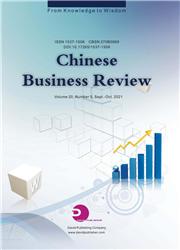“Weaponizing” Humor in Bulgarian Political Rhetoric: Limits of Political Speech in National and Transnational Perspectives
引用次数: 0
Abstract
In the wake of internet spoiling global audiences with memes and political satire, humor established itself as an intrinsic part of contemporary political rhetoric. A universal notion of humor and free speech, however, yet remain an abstract concept as the national context and the meta-narrative allow partisan interpretation, thus drawing the line between laughter and unlaughter. Nonetheless, the clichéd view of the satirist as a rebel, “speaking truth to power” is struggling to fit the image of the right-wing populists, using humor as a tool to aid marketing political ideas both nationally and globally. In respect to political speech, while humor is an eligible means for singling out political allies globally, it is the national state that is the agora on which standards and limits of free speech, ergo what is humor, are negotiated. This article tackles how humor in Bulgarian election campaign in 2021-2022 is used to serve the populist right-wing agenda in pursuit of political advantages over opponents and how the usage of global context fits in the local framework. In a field of political distrust and competing polar ideologies, the problem resides in how the national nuances of defining humor affect political meanings, identity, and the local discourse on culture wars. The article also takes a transnational comparative approach to political humor in the context of its partisan exploit for populist political purposes in European democracies.保加利亚政治修辞中的“武器化”幽默:国家和跨国视角下政治言论的局限
随着互联网上的模因和政治讽刺充斥着全球观众,幽默成为当代政治修辞的内在组成部分。然而,幽默和言论自由的普遍概念仍然是一个抽象概念,因为国家背景和元叙事允许党派解读,从而在笑声和轻松之间划出了界限。尽管如此,讽刺作家作为反叛者的陈词滥调“向权力说真话”正在努力适应右翼民粹主义者的形象,将幽默作为一种工具来帮助在全国和全球营销政治思想。就政治言论而言,虽然幽默是在全球范围内挑选政治盟友的一种合格手段,但正是民族国家才是谈判言论自由标准和限制的广场,也就是幽默。本文探讨了2021-2022年保加利亚竞选活动中的幽默如何被用来为民粹主义右翼议程服务,以追求对对手的政治优势,以及全球背景的使用如何符合当地框架。在一个政治不信任和两极意识形态相互竞争的领域,问题在于定义幽默的国家细微差别如何影响政治含义、身份和当地关于文化战争的话语。这篇文章还对政治幽默采取了跨国比较的方法,以期在欧洲民主国家实现民粹主义政治目的。
本文章由计算机程序翻译,如有差异,请以英文原文为准。
求助全文
约1分钟内获得全文
求助全文

 求助内容:
求助内容: 应助结果提醒方式:
应助结果提醒方式:


